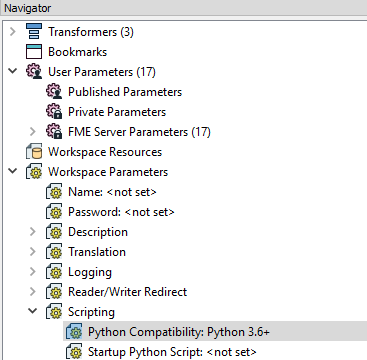Hello,
I'm facing a new issue with ListKeyValuePairExtractor componant, for some data it encounter an encoding error :
Python Exception <UnicodeDecodeError>: 'ascii' codec can't decode byte 0xa0 in position 12: ordinal not in range(128)Traceback (most recent call last): File "<string>", line 30, in input File "<string>", line 118, in get_list_attribute_namesUnicodeDecodeError: 'ascii' codec can't decode byte 0xa0 in position 12: ordinal not in range(128)Error encountered while calling method `input'f_60(PythonFactory): PythonFactory failed to process featureA fatal error has occurred. Check the logfile above for detailsError encountered while calling method `input'f_42(PythonFactory): PythonFactory failed to process featureA fatal error has occurred. Check the logfile above for details
I tried a lot of things, encode all attributes on utf-8 or windows-1252, I've try a stringreplacer with this regex ([^\w\S"]{0,2}$). But anyway still the same issue, the job stop on the ListKeyValuePairExtractor .
Any idea how to fix that or ignore those errors and continue to process the other things ?
Kind regards,
Nicolas








